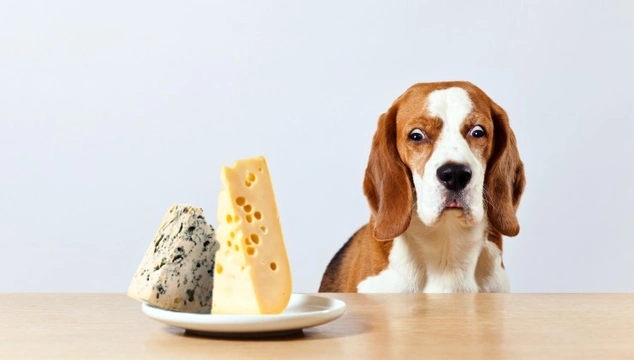
Can dogs eat cheese? Safe tips and benefits for owners
Many dog owners frequently ask the question, "can dogs eat cheese?" Cheese is not toxic to dogs and is often enjoyed as a tasty treat. However, the answer is not a simple yes or no, as there are important factors to consider when offering cheese to your canine companion.
Understanding Cheese for Dogs: Benefits and Risks
Cheese can be a good source of calcium, which supports strong bones and teeth, essential for an active and healthy dog. It also provides a high-value reward for training due to its appealing taste and texture.
However, some dogs are lactose intolerant, lacking the enzyme needed to digest lactose found in dairy. Feeding cheese to lactose-intolerant dogs can cause stomach upset, including diarrhoea, vomiting, or gas. Additionally, cheese tends to be high in fat and calories. Excessive intake can contribute to weight gain and, in sensitive dogs, may increase the risk of pancreatitis, a potentially serious inflammation of the pancreas.
Cheese as a Training Reward
Using cheese cubes as a high-value treat can be effective, especially with food-motivated breeds like the Labrador retriever puppies. Cheese rewards should be given sparingly to maintain their motivational value. Overfeeding can make the treat less special and risk dietary imbalance.
When Cheese May Benefit Your Dog
Cheese can help dogs needing to gain weight or extra protein in their diet. It’s useful for older dogs who might lose interest in regular meals, as its strong aroma and flavour can entice reluctant eaters. In such cases, incorporating a small, controlled amount of cheese as a garnish or treat may improve appetite and nutrition.
Dogs That Should Avoid Cheese
Dogs prone to obesity or those with a history of pancreatitis should avoid cheese due to its high fat content. If your dog experiences any digestive upset after eating cheese, it’s likely they are lactose intolerant. In these cases, cheese should be completely avoided to prevent discomfort and health problems.
Safe Cheese Choices for Dogs
Cheddar cheese is generally safe and comes in various forms from mild to strong flavours. Stronger cheddars are usually higher in fat, so portion control is essential. Avoid soft cheeses like brie and camembert, which are particularly rich and may cause stomach upset.
Never offer cheeses containing harmful additives such as garlic or onion, as these are toxic to dogs. Always check ingredients carefully before feeding cheese to your pet.
How to Safely Feed Cheese to Your Dog
- Start small: Introduce a tiny amount to test tolerance and watch for adverse reactions.
- Choose low-fat options: Mozzarella or mild cheddar are better choices.
- Use as a treat: Incorporate cheese sparingly, never as a meal replacement.
- Monitor intake: Factor cheese calories into your dog’s daily diet to avoid overfeeding.
By following these guidelines, cheese can be a safe and enjoyable treat for your dog, enhancing training and providing nutritional benefits for those dogs that need it.
Always consult your vet before introducing new foods, especially if your dog has existing health conditions.



